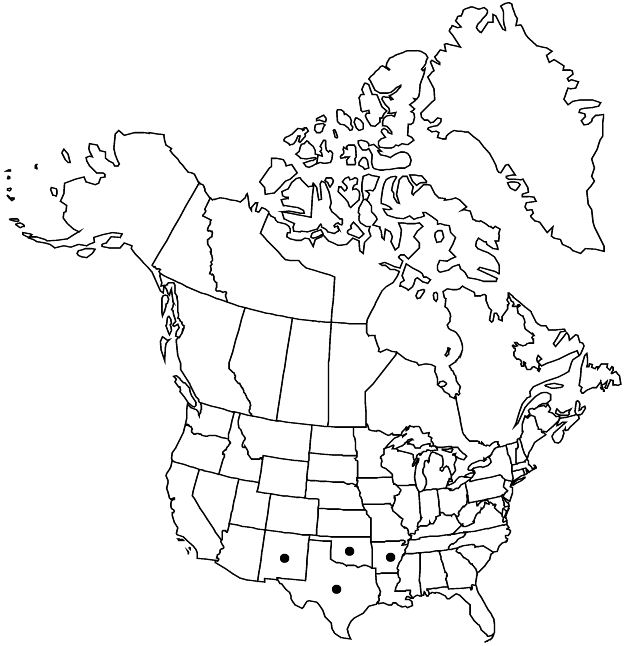Difference between revisions of "Abutilon fruticosum"
in J. B. A. Guillemin et al., Fl. Seneg. Tent. 1: 70. 1831.
FNA>Volume Importer |
FNA>Volume Importer |
(No difference)
| |
Revision as of 20:15, 24 September 2019
Subshrubs, 1–1.5 m. Stems erect, stellate-tomentulose, without simple hairs. Leaves: stipules subulate, 2 mm; petiole shorter than blade; blade ± concolorous, ovate, 2–10 cm (often smaller), somewhat longer than wide, base cordate, margins irregularly serrate, apex acute, surfaces minutely stellate-pubescent. Inflorescences solitary flowers or terminal panicles. Flowers: calyx 3–5 mm, lobes not overlapping, reflexed in fruit, lanceolate-ovate, to 8 mm wide; corolla yellow throughout, petals 5–10 mm; staminal column glabrous; style 6–9-branched. Schizocarps cask-shaped, 8–9 × 8–9 mm; mericarps: apex acute or apiculate, surface tomentulose. Seeds 3 per mericarp, 2 mm, puberulent but appearing glabrous. 2n = 14.
Phenology: Flowering year-round.
Habitat: Open, arid habitats
Elevation: 0–2000 m
Distribution

Ark., N.Mex., Okla., Tex., Mexico (Chihuahua, Coahuila, Nuevo León, San Luis Potosí, Tamaulipas, Zacatecas), se Europe, n Africa.
Discussion
Abutilon fruticosum is thought to be native to the New World; it also occurs disjunctly in northern Africa and the Levant countries. It is widespread in southwestern Texas, scarce in Oklahoma and Arkansas, and is known from Chaves and Lincoln counties, New Mexico.
Selected References
None.